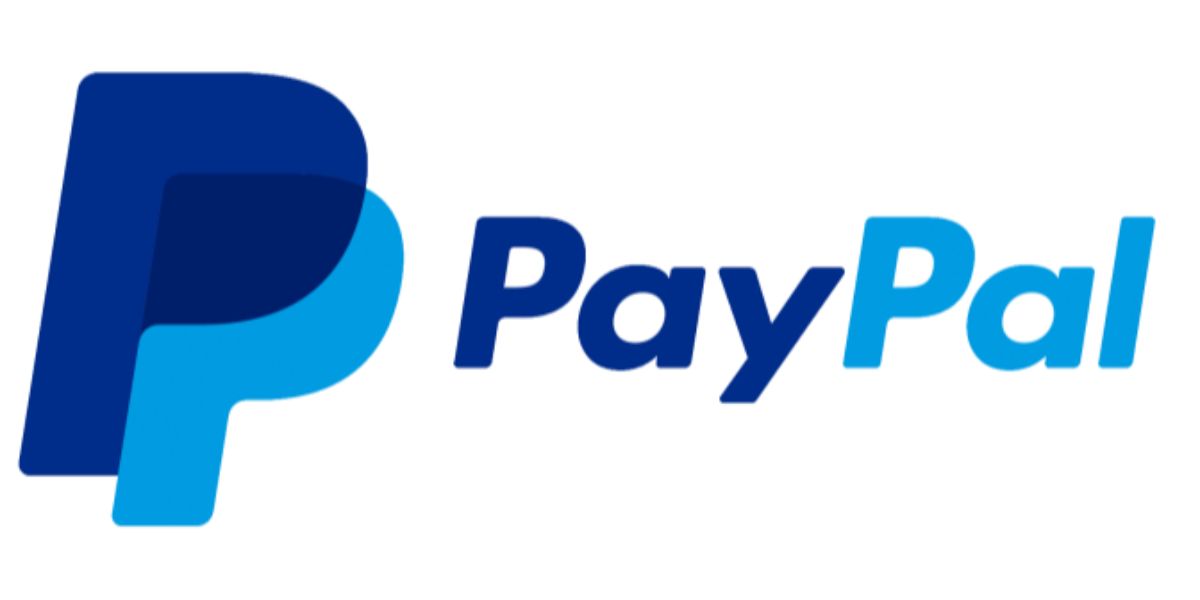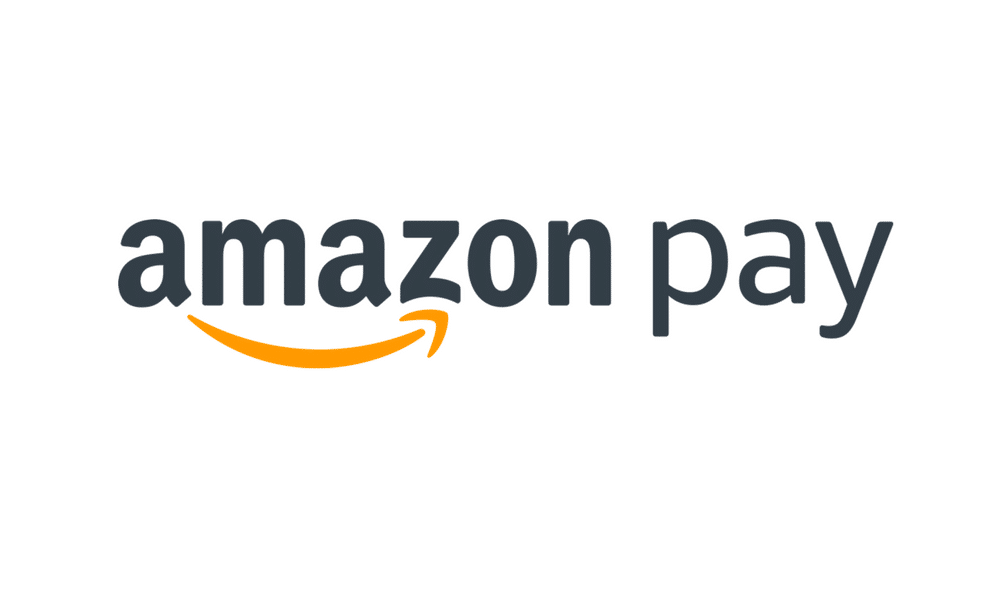There is so much to organise when you start taking payments online. You’ve heard terms like “payment gateway” and “merchant account” floating around. You heard an online payment system covers all these things in a neat bundle, so that sounds pretty good to you.
The team here at CardSwitcher are payment processing experts. We’ve rounded up our top 10 favourite online payment systems in this article, helping you decide which is best for your business. Specifically, we explore:
- Fees involved.
- The breadth of payment methods they are capable of processing.
- Your options for integrating with third-party softwares.
Keep reading to see which online payment system is the best fit for your business.
Note: Prices correct as of 10/4/24. We are partnered with some of the providers on this list. This post DOES NOT contain any affiliate links so we won’t make any money from any of the links on the post. We only make money if you use Cardswitcher to compare card processing costs and choose one of the providers there.
Best online payment systems at a glance
1.
Stripe- best for third-party integrations
2.
Shopify- best for Shopify store users
3.
Adyen- tied best for multinational companies
4.
GoCardless- best for subscriptions/invoicing
5.
Opayo- best for transport industry
6.
Authorize.net- tied best for multinational companies
7.
WorldPay- best for businesses with high turnover
8.
Square- best for small teams
9.
PayPal- best for quick checkout experience
10.
AmazonPay- 2nd best for quick checkout experience
What is an online payment system?
An online payment system is a technology that allows customers to pay digitally for goods and services online. It allows them to enter their information and carries out the full processing of the payment right until it finally enters the merchant’s business bank account.
It is made up of 3 main components to cover all the steps of the payment processing process:
- Payment gateway - allows customers to input payment information.
- Payment processor - carries out the processing of the payment.
- Merchant acquirer - allows payments to be moved into a holding account before the final transfer.
An online payment system can do all of these steps or you can choose to mix and match different providers if they are compatible.
Overview of the best online payment systems in the UK
This table gives you an easy-to-compare view of the main need-to-knows about each online payment system.
| Star rating* | Contract required? | Monthly cost | Transaction fee | Settlement period | |
|---|---|---|---|---|---|
| Stripe | 4.3 | No | None | 1.2-2.5% + 20p | 3-7 calendar days |
| Shopify | 4.1 | Only for Shopify Plus (1 or 3 years) | From £19/month (includes Shopify store) | 1.5-2.5% + 25p | 1-3 business days |
| Adyen | 4 | No | None | Various + 11p | 2 business days |
| GoCardless | 4 | No | None | 1-2.4% + 20p | 0-1 business days |
| Opayo | 3.8 | Rolling - 3 month cancellation period | £25 for 350 transactions or £0 with 12p/gateway click | From 0.99% or from 1.99% | 3-5 business days |
| Authorize.net | 3.8 | No | $25 | 10¢ + daily batch fee 10¢ - 2.9% + 30¢ | 2-3 business days |
| WorldPay | 3.75 | 18 months | From £19.95 | 1.5% | 2-3 business days |
| Square | 3.75 | No | None | 1.4-2.5% + 25p | Instantly to next business day at 4pm |
| PayPal | 3.1 | No | None | 1.2-2.9% + fixed fee | Instantly to 2 business days |
| AmazonPay | 3 | No | None | 2.7% + 30p | 3-5 business days |
*Note: Our star rating is calculated based on the cost, payment methods accepted, third-party integration compatibility, ease of integrating with your checkout, and customer support. Each category is given a score out of 5 and the average score is the final star rating. This rating is general for overall comparison, so please note that a lower score doesn’t necessarily mean it’s not the best option for your business.
Stripe is a well-known name in the online payment systems space. It’s an all-round full payment solution that is easy to integrate with your website and shopping cart.
Your customers have plenty of payment options - the usual credit/debit cards, digital wallets, AfterPay (Buy Now Pay Later), payment links (the one-click checkout “Link”), and more.
Stripe pairs well with loads of third-party integrations, like shopping carts and other business tools like email systems, invoicing systems, and more.
Best suited for:
-
Companies who need a lot of customisation and integrations to support technical/analytical needs.
Pricing
There are no contracts or monthly fees to use Stripe. They have a detailed list of fees for accepting their many different payment methods. These prices are taken from their pricing page:
| Payment Type | Fee |
|---|---|
| Standard UK credit/debit cards | 1.5% + 20p |
| Premium UK credit/debit cards | 1.9% + 20p |
| European Economic Area cards | 2.5% + 20p (+2% if currency conversion required) |
| International cards | 3.25% + 20p (+2% if currency conversion required) |
| Link (one-click checkout) | 1.2% + 20p for UK cards |
| Settle and pay out in additional currencies | 1% |
| Adaptive acceptance*** | 0.08% per successful card charge |
| Local payment methods (e.g. WeChat Pay, AliPay, Blik) | 1% |
| Buy Now Pay Later | From 2.99% + 35p |
| Instant payouts | 1% |
| Disputes | £20 per dispute |
** Adaptive acceptance is a machine learning model that helps increase revenue by improving authorisation rates in real-time.
Strengths
-
Pricing is transparent.
-
UX is great for both desktop and mobile.
-
Plenty of integration/customisation options.
Weaknesses
-
It’s tricky to set up all the integrations without the help of a developer.
-
Bit pricey to process non-European cards.
-
Long payment settlement period.
Shopify is a great online payment system if you need a properly holistic approach to selling online. With Shopify, you can set up your ecommerce shop and process the payments, all with one provider. Shopify’s payment processing is underpinned by Stripe, but you only deal with Shopify. We should also mention you can only use Shopify Payments with a Shopify store.
Your customers can pay using a massive range of payment methods. They are capable of processing just about anything, from Apple Pay to cryptocurrency! You can amend your payment provider settings to put the options you’re comfortable with.
If you want a smooth set-up to take payments online, Shopify is an excellent solution. They have an impressive library of over 8000 apps that you can integrate into your site to enhance the user experience and improve your reporting. You can also integrate with 1 of 100 independent payment gateways if you find a different provider you prefer.
Best suited for:
-
Businesses who want to cover all bases, from website creation to payment processing in one place.
Pricing
Currently, you can try Shopify free for 3 days so you can work out which plan best suits your business. Shopify pricing is listed on their site, but we’ve condensed the most important bits in the table below:
| Basic (solo entrepreneurs) | Shopify (small teams) | Advanced (larger enterprises) | |
|---|---|---|---|
| Monthly fee (if paying monthly) | £25 | £65 | £344 |
| Monthly equivalent fee (if paid in full yearly) | £19 | £49 | £259 |
| Processing fee online | 2.5% + 25p | 1.7% + 25p | 1.5% + 25p |
| Third party payment provider fee | 2% | 1% | 0.6% |
Strengths
-
Everything is in one place - no need for multiple different providers.
-
Shopify checkouts are estimated to convert 15% better than competitors.
-
Flat-rate pricing so easy to predict your costs.
Weaknesses
-
Transaction fees are quite high.
-
No instant payout option.
-
Can only use with a Shopify online store so no good if you already have a website.
Adyen is used by some mega big brands like Netflix, Uber, and Microsoft. It’s a good option for businesses with higher turnover, especially if you take online and offline payments.
Adyen allows your customers to pay with a very wide range of payment methods, including local options like WeChat Pay, making Adyen a great online payment system for multinational businesses. You can also take payments via link and in-app.
There are 34+ partners that make compatible plugins for Adyen. It’s easy to integrate your current ecommerce store with their payment processing system.
Best suited for:
-
Large businesses with high turnover who take payments from overseas.
Pricing
Adyen doesn’t have the simplest of pricing structures. The fees change depending on the payment method, plus they use Interchange Plus pricing.
They charge 11p + a fixed processing fee that changes depending on the payment method. You can take a look on their site for more information, as it would be much too much to list every method here!
Strengths
-
Capable of processing a wide range of payment methods.
-
Security features are excellent.
-
Effective at combating fraud with risk management tools.
Weaknesses
-
The fee structure is complicated so it is difficult to estimate your overall costs.
-
Monthly minimum payment required.
-
Suits larger enterprises better than small, new businesses.
GoCardless facilitates direct bank payments, rather than processing card payments. You send your customers a payment link, they enter their personal details, and approve the transaction in their banking app. It’s a smooth online payment system that works out a lot cheaper than processing card payments.
With GoCardless, you can take payments from customers in 30+ countries. You can set up automated recurring payments and take one-off transactions. All payments are bank-to-bank, so you can’t take any other payment methods, so there are fewer options to suit your customers.
You get access to an online dashboard and it’s simple to integrate with any of 350+ software partners, so you can streamline all of your reporting systems.
Best suited for:
-
Companies who invoice for payments.
-
Companies who sell subscriptions.
-
Charities.
-
Lenders.
Pricing
The direct bank payments mean that you save money compared to card processing - GoCardless estimates around 54% savings!
Right now, you don’t pay transaction fees for the first 90 days. After this, here are the fees from their pricing page.
| Standard | Advanced | Pro | |
|---|---|---|---|
| UK transaction fee | 1% + 20p | 1.25% + 20p | 1.4% + 20p |
| International transaction fee | 2% + 20p | 2.25% + 20p | 2.4% + 20p |
Strengths
-
Can take direct debits easily regardless of date/value changes.
-
If payments fail, it automatically retries at the best time - works 70% of the time!
-
Confirms payments immediately.
-
Simple to integrate with 350+ different software partners.
Weaknesses
-
Transaction limits - £5,000 limit per transaction in the UK.
-
Not the best option for online stores.
-
Most fraud protection features are paid extras.

5. Opayo
Our rating
Pricing
£0-25 per month, 0.99-1.99% transaction fee, 0-12p gateway-click fee.
You may know Opayo (owned by Elavon) under its previous name, “SagePay”. It’s one of the most popular payment systems in the UK, and is widely regarded as a good choice somewhere between WorldPay and Shopify. They advertise their niche focus on airlines, hospitality, transportation and retail, so you should investigate them if you operate in these sectors.
Opayo can process all major cards and PayPal, as well as over 100 different currencies. You can also offer your customers the option to pay by link or over the phone/by mail with a virtual terminal.
Opayo works well with all major ecommerce providers, including Shopify, WooCommerce, Magento, and Salesforce.
Best suited for:
-
Those in hospitality, retail, transport/airlines.
Pricing
Opayo is a very flexible option, offering a choice of two plans depending on the needs of your business. You can see the details in the table below:
| Fixed plan | Pay-as-you-go plan | |
|---|---|---|
| Sign-up fee | £0 | £99 |
| Monthly gateway fee | £25 | £0 |
| Transaction fee | From 0.99% | From 1.99% |
| Other | 350 free transactions | £0.12 gateway click-fee |
You are best going for the fixed plan if your business operates all year round. The pay-as-you-go plan is the best bet for seasonal businesses.
Strengths
-
Flexible plans to suit your particular needs.
-
Quick funds settlement - 48 hours or pay extra for same/next day.
-
24/7 access to customer support.
-
Online portal with real-time business reports and more.
Weaknesses
-
Sign up and/or monthly fees.
-
Need to give 3 months notice to cancel your contract.
-
Not suitable for businesses who have low turnover.

6. Authorize.net
Our rating
Pricing
Monthly fee: $25. Transaction fee: 10¢ + daily batch fee 10¢ - 2.9% + 30¢
Authorize.net is one of the oldest names in the online payment systems sphere. It’s noted to be one of the best at handling high volumes of transactions from overseas.
You can offer your customers a wide range of payments from credit/debit cards, digital wallets, PayPal, eChecks, and virtual terminal.
There are loads of options for integrating with other softwares with Authorize.net.
Best suited for:
-
Multinational businesses with high volumes of transactions from overseas.
Pricing
The pricing on Authorize.net is all in US currency - we won’t convert it here as it won’t be as accurate. There is a choice of plans advertised for businesses who process less than $500k a year. See below:
| All-in-one | Payment gateway and eCheck | Payment gateway | |
|---|---|---|---|
| Monthly gateway | $25 | $25 | $25 |
| Setup fee | $0 | $0 | $0 |
| Processing fee | 2.9% + 30¢ | eCheck: 0.75% ; credit card: 10¢ + daily batch fee 10¢ | 10¢ + daily batch fee 10¢ |
The all-in-one includes a merchant account. If you already have one of these, the other two plans are for you. If you don’t care about taking eChecks, the standard payment gateway is the plan for you.
Strengths
-
Award-winning 24/7 customer support.
-
Option to automate recurring payments.
-
Winner of “Best API Integration” award 2 years in a row.
Weaknesses
-
Additional features come at an extra cost.
-
May not offer enough customisation options for some more unique businesses.
-
UI is dated.
WorldPay processes around 40% of all card transactions in the UK - they are good at what they do! Merchants and customers around the world are familiar with the WorldPay name, so it’s a very trustworthy online payment system.
If you’re an international merchant, WorldPay caters to you well. They accept 300 payment methods in 126 different currencies. Your customers are spoilt for choice with payment options - all major credit/debit cards, digital wallets, pay by link, and virtual terminal are all accepted.
As such a large company, WorldPay works seamlessly with hundreds of business tools you might already be using.
Best suited for:
-
Large, multinational companies with high turnover.
Pricing
WorldPay’s pricing is a bit difficult to follow, so we’ll try our best to break it down for you. They charge for different elements separately - you choose which payment gateway package you’d like, if you want extras like a virtual terminal or phone payment, and there are extra charges here and there too.
Here are the options for payment gateways:
| Standard | Advanced | Enterprise |
|---|---|---|
| 350 transactions/month | 850 transactions/month | Bespoke |
| £19.95/month | £45/month | Bespoke |
Here are the other charges which may apply to your business:
| Transaction fees | PCI compliance | Phone payments | Virtual terminal | Minimum service charge | Chargebacks |
|---|---|---|---|---|---|
| 1.5% per Visa/Mastercard payment | £29.99/year | £9.99/month | £9.95/month | £15 | £20 |
Strengths
-
Very comprehensive range of payment methods.
-
Customer support available 24/7 365 days a year.
-
Funds can be settled the next day.
-
Great security features.
Weaknesses
-
Require a contract with fees for early termination.
-
Not great for businesses with lower turnover.
-
The UI is a bit dated looking.
Square helps you process both online and offline payments with their Square card reader, though you can use them purely for online payments.
With Square, you can take major credit/debit cards and digital wallets like Google Pay and Apple Pay. If your online store has an associated app, you can take payments through the app too. Square doesn’t have the widest range of supported payment methods, but it should be enough for most merchants.
Square can also integrate with many other softwares you might already be using for reporting and more. It’s simple enough that you don’t necessarily need a developer on your team to do it for you.
Best suited for:
-
Businesses who sell in-app.
-
Small teams who need predictable fees.
-
Small teams without developers in-house.
Pricing
If you process less than £250k a year, Square’s fees are as follows:
| UK cards | Non-UK cards |
|---|---|
| 1.4% + 25p | 2.5% + 25p |
For a turnover above £250k, you’ll need a custom quote from Square.
Strengths
-
Easy to predict costs with their simple fee structure.
-
Straightforward for non-developers to integrate with third-party tools.
-
Can action Instant Transfer of funds for extra 1%.
Weaknesses
-
Fees are high compared to competitors.
-
Some reports of small businesses having their accounts frozen with no access to funds.
-
Doesn’t support as many payment methods as competitors.
PayPal helps reduce cart abandonment since customers can easily pay with their existing account, rather than having to go through the process of inputting all their details on your site. PayPal estimates they increase checkout conversion by 62%!
With PayPal, your customers can pay with the payment methods attached to their PayPal accounts. This is only credit/debit card or bank account, so you are best using PayPal in addition to another payment system if you want to give your customers a wide range of payment method support. Over 25 currencies are supported, as well as cryptocurrency!
You can integrate your PayPal Business account with loads of ecommerce platforms, including WooCommerce, BigCommerce, OpenCart, Shopify, and more.
Best suited for:
-
Businesses that make a larger turnover and high value per transaction.
Pricing
PayPal’s pricing page is not the easiest to pick apart, so we’ve picked out important info for you. The following is for processing UK payments:
| Receiving domestic transactions | 1.2-2.9% + 30p |
|---|---|
| Domestic transactions using PayPal Online Card Payment services | 1.2-3.4% + 30p (interchange fees from 0.2-2%) |
| Sending domestic PayPal payouts | 2% (up to £10) |
| Receiving domestic micropayments | 5% + 5p |
| Chargebacks | £14 |
If you are going to take payments from overseas, the following fees may apply:
| Receiving international transactions | 1.29-1.99% |
|---|---|
| International transactions using PayPal Online Card Payment services | 1.29-1.99% (interchange fees from 0.2-2%) |
| Sending international PayPal payouts | 2% (up to £60) |
| Receiving international micropayments | 6% + 5p |
Strengths
-
Instantly access funds with PayPal Balance.
-
You can compose and send invoices easily through your account.
-
You can set up recurring payments.
-
Simple for customers to checkout as they can proceed with details stored on PayPal.
Weaknesses
-
Customer service is not as highly rated as other providers.
-
Not compatible with high-risk merchants.
-
Pricing structure is incredibly complicated - hard to know what you’re paying.
Amazon Pay is a great option that helps you to combat abandoned carts - 37% of customers abandon carts because they are asked to create an account, but with Amazon Pay, they can use their Amazon account.
Customers can use their Amazon account to pay with credit or debit card. They can even use the Amazon Alexa to pay using their voice. It’s the option on this list that offers the least payment methods support, but you can use it alongside another payment system.
Adding an Amazon Pay button is easy on major eCommerce sites from Shopify, WooCommerce, and BigCommerce. It’s not available with some sites built on Wix, Squarespace, and Square Online.
Best suited for:
-
Businesses that make a larger turnover and high value per transaction.
Pricing
Amazon Pay pricing is outlined below. The processing fees are for businesses processing less than £50,000 per year. For processing above this figure, contact them directly for a quote:
| Processing fee | Authorisation fee | Cross border fee | Currency conversion fee | Chargeback dispute fee | Refund fee |
|---|---|---|---|---|---|
| 2.7% | 30p | 0.4-1.5% (depending on country that issued the payment method) | 0.5% above wholesale exchange rate applied by Amazon’s bank service provider | £14 | Free but the authorisation fee is not refunded |
Strengths
-
Choose to charge customers straight away or at certain stages in the buying process.
-
Easy to set up recurring payments.
-
No set up or monthly fees.
Weaknesses
-
Reserve policy means you don’t get any funds for the first 7 days.
-
No discounts or custom plans for high turnover.
-
Much pricier than other providers.
-
Doesn’t accept many payment methods so you have to add support with a different provider.
What are the benefits of an online payment system?
There are loads of benefits to using an online payment system:
- It’s convenient - your customers can pay for goods and services online anytime they like from anywhere in the world.
- It’s speedy - you don’t need to wait around for cheques to clear or deposit cash at the bank. Funds transfer digitally within a few days, improving your cash flow.
- It’s secure - all payment information is encrypted and passes through fraud detection systems to keep you and your customer’s data safe from hackers.
- It’s flexible - you can integrate with other softwares, like your ecommerce site provider, accounting and CRM software.
Verdict
The right choice of online payment system for your business is a very personal choice. You need to consider your business size and growth goals, selling model, turnover, countries of operation, and more.
We’ve organised each online payment system provider into different categories to make your choice easier!
Your turnover is high and you sell overseas as well as domestically.
Authorize.net, WorldPay, PayPal, Stripe, Shopify, Adyen, Amazon Pay.
You want to offer your customers a very wide range of payment methods.
WorldPay, Stripe, Shopify, Adyen, Authorize.net.
You sell subscriptions/send invoices for work.
GoCardless.
You need a system that works with lots of third-party integrations.
WorldPay, Stripe.
You only operate seasonally.
Opayo.
You sell in-app.
Adyen, Square.
You need quick settlement of funds.
Square, PayPal, GoCardless.
Frequently Asked Questions
- What is the difference between online payment methods and online payment systems?
An online payment method is what a customer uses to pay - a credit/debit card, digital wallet, direct bank transfer, etc. An online payment system is the system that allows a customer to enter their details and then processes card payments.
- What’s the difference between an online payment system and a merchant account?
A merchant account is a “holding” account where your funds are transferred to after they leave the customer’s account, but before they reach your business bank account. An online payment system is a system which processes payments and it often includes a merchant account, alongside a payment gateway and payment processor.
- What’s the difference between an online payment system and a payment gateway?
A payment gateway is a software that allows your customers to enter their payment information in order to make a purchase. An online payment system includes a payment gateway, alongside a payment processor to then carry out the remaining steps in the payment processing process.
- What is the most popular online payment method in the UK?
VISA and Mastercard credit/debit card payments are the most popular payment methods in the UK currently. Paypal is third, followed by American Express card payments, and then Apple Pay (Source: ECDB, 2022).
- Are hosted online payment systems better than self-hosted systems?
This comes down to your preferences as a business. Hosted gateways are usually more cost-effective because everything is hosted on the provider’s website, so you don’t need to pay for the extra costs associated with this. If your business wants more control over the customer checkout experience, then a self-hosted system is a better option.










